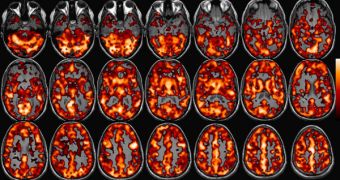The research inside the causes of schizophrenia is a very complex one, scientists agree, as there are many areas of the brain that are involved in the onset and development of the disease, as well as many neurotransmitters that act on those regions, such as dopamine and glutamate. That's why the orbitofrontal cortex has thus far been largely eluded by research. Now, scientists at the University of Pittsburgh found this brain portion to play an important role in schizophrenia.
The orbitofrontal cortex is a portion of the brain that deals primarily with cognitive abilities, though the full extent of its functions has yet to be discovered. In fact, this region is one of the least known in the entire human brain. Specialists assume it plays a vital role in generating expectations, in sensory integration, as well as in reward anticipation. Because of its role, most scientists dismissed the possibility of it playing any significant role in this chronic, disabling disease.
"The orbitofrontal cortex is an area that's been somewhat neglected in schizophrenia research. This study should encourage researchers to focus on this brain region in imaging and other human studies, and also to use as a model for developing anti psychotic drugs. Schizophrenia appears to be caused by very diverse and sometimes rare genetic mutations," said lead study author Bita Moghaddam, who is also a professor in the Department of Neuroscience in Pitt's School of Arts and Sciences.
"Diverse mutations can end up causing the same disease if they disrupt the function of a common group of neurons or networks of neurons. We think that the key to understanding the patho-physiology of schizophrenia and finding better treatments is to identify these networks. This data suggests that the orbitofrontal cortex may be a critical component in networks affected by schizophrenia," she added.
The Pitt research team currently explores treatment options involving dopamine inhibitors, through already-tested methods, as well as glutamate suppressors, which are still experimental. They say that this therapy shows promise and that further investigation could prove helpful in developing new ways of looking at this debilitating disease.

 14 DAY TRIAL //
14 DAY TRIAL //